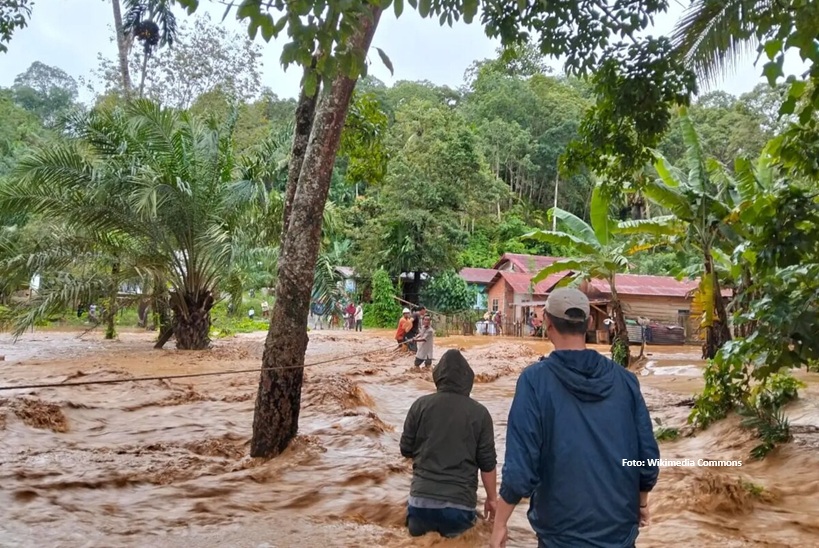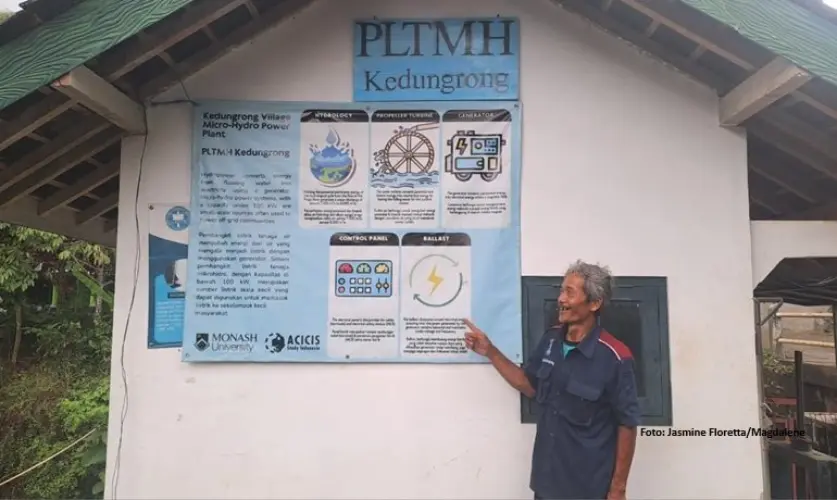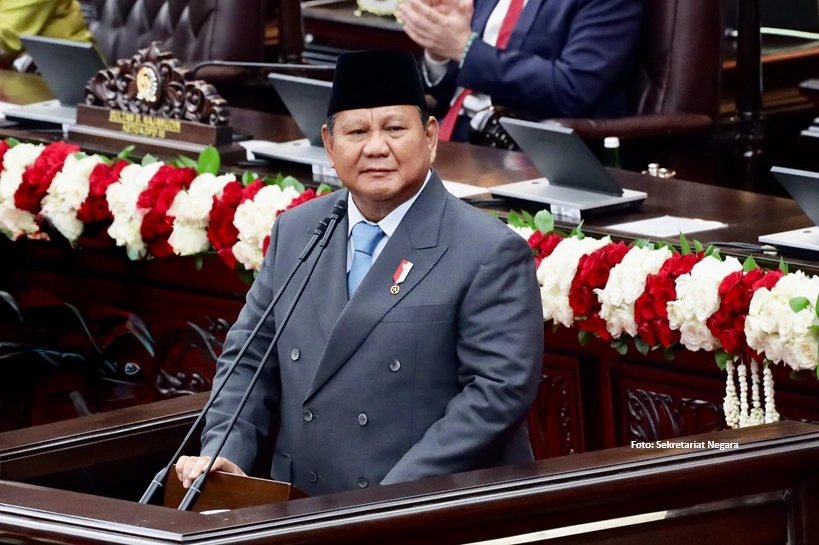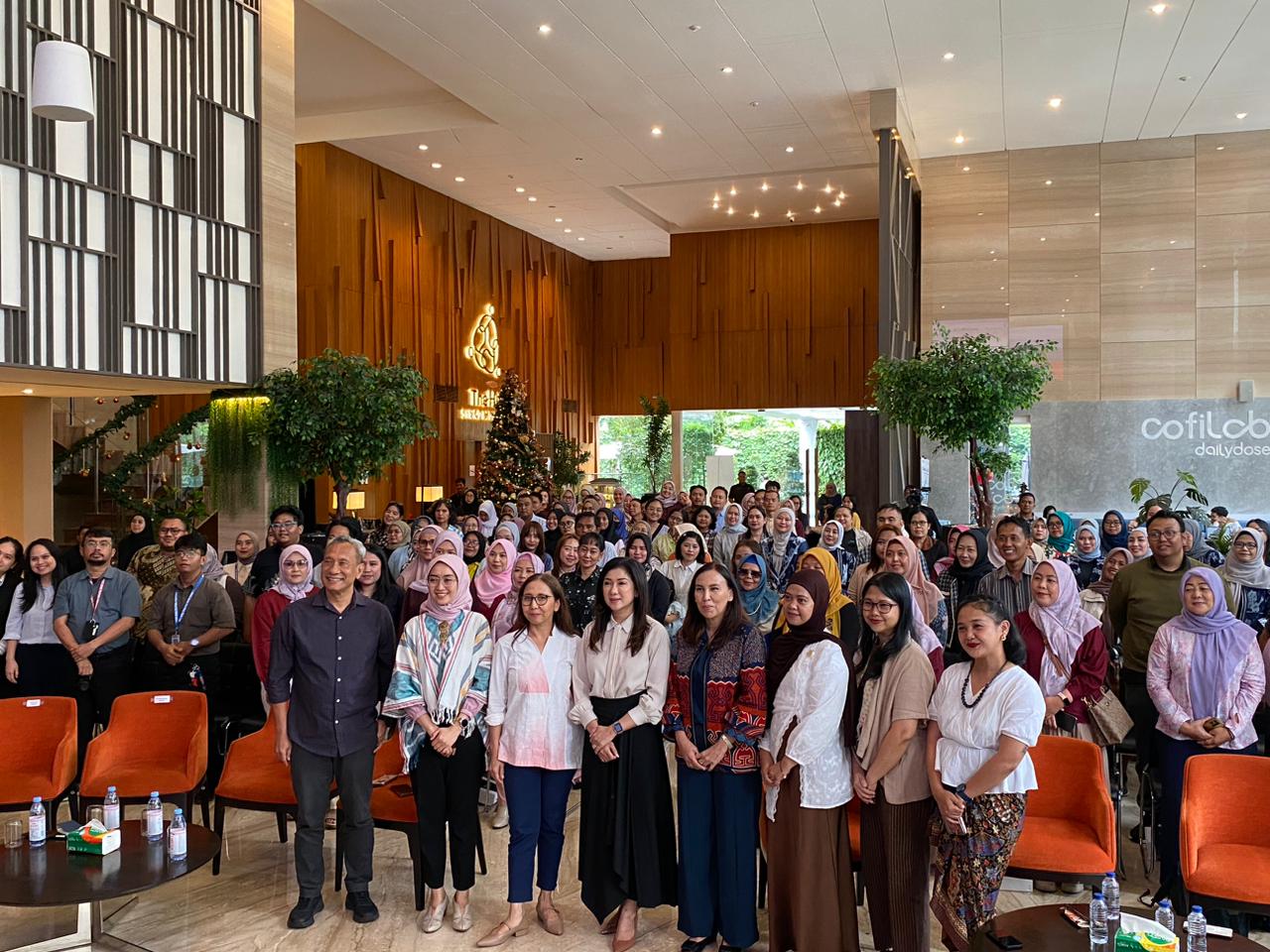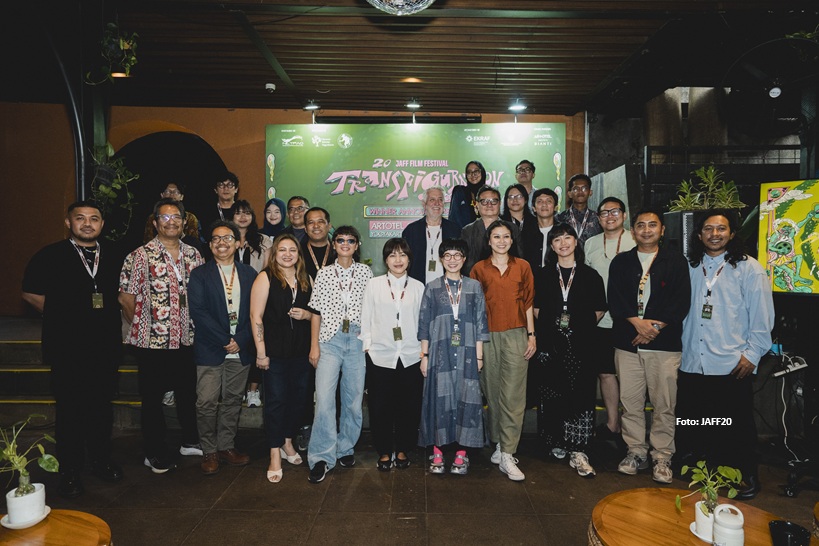Warm Bodies, Hot Celebs: The Female Factor in This Election

In the oblique, unruly and often bewildering world of Indonesian politics, Lismaini is a true neophyte: a housewife who doesn’t even follow the news, but who was somehow roped in to become a legislative candidate in this year’s election.
It all started when the 47-year-old met a female politician at a public gathering last year. The woman was running for National Parliament (DPR), and she asked Lismaini to run for the legislature for the Muslim-based United Development Party (PPP).
There was no time to contemplate. It was already May and the General Elections Commission (KPU) was in the process of verifying the list of legislative candidates, three months before all the 15 parties contesting the 2014 Election were to submit their final lists of candidates.
Once she agreed, Lismaini didn’t even have to do much, just filling out some forms, providing passport photos, and showing up for the required medical check-up (which was already paid for by the party).
“When my friends heard that I ran for parliament, they were really shocked,” she told me during a lunch interview for my book research in Jakarta in the second week of December.
“They asked how much I had to spend for the campaign, I told them I was going to spend as little as possible,” she said.
Four months ahead of the April 9th election, she had not done anything besides printing her political name card in party green featuring its symbol the Ka’bah, her picture and her candidate’s number (6).
“There are still a few months to go, I’m not worried,” she said laughing.
It was three more weeks before the official campaign season began in January 2014, but by that time I’d observed enough candidates to know that the earlier you start a campaign, the more chance you have at winning.
Since the middle of 2013, some candidates have systematically built and maintained communication with their constituencies, meeting with local leaders, holding concerts or sports events, giving charitable donations, distributing seeds and fertilizers for farmers, organizing trainings for teachers, or offering free pap-tests and treatments for women.
I asked Lismaini if she really wanted to win, and if so, why she hadn’t visited her constituency in Bogor, a West Java town about 1.5 hours from the capital.
“I want to win, but I just don’t have the money. And the earlier you start the campaign, the more you spend.
Showbiz and Dynastic Politics
Money is just one of the issues facing female legislative candidates in this election year. At the heart of the problem is the fact that women are engaged by political parties as mere warm bodies to meet the 30 percent female candidates quota set by the 2008 Electoral Law. They were recruited and then left to their own devices.
Thanks to a stricter enforcement by the election commission, the number of female contenders for the legislatures this year reaches record high at 38 percent of the 6,608 registered candidates. While this is an achievement for the women’s groups that fought long and hard since 1998 for more inclusion of women in politics, a lot remains to be done.
Political parties initially resisted a gender-based affirmative policy in parliamentary election, calling it undemocratic and unrealistic. Their concerns were and are still real: they don’t have enough female cadres to meet the 30 percent quota.
Despite an increasing number of women in Indonesia holding important positions as ministers, supreme justices, mayors, and even governor, politics have remained the domain of men.
“Parties are still run under patronage politics, which is highly patriarchal,” said political scientist Siti Zuhro from the Indonesian Institute of Sciences (LIPI).
“Everything is top-down and is based on seniority. They are very power-oriented – and there’s nothing wrong with it, except that they neglect to develop a sound recruitment and regeneration process.”
The parties’ glaring failure at institutional building with qualified cadres effectively discourages meaningful women’s participation in politics.
After the 2009 election, parties should have intensified its networking with communities of campuses, professionals, civil society organizations and intellectuals to recruit women with the right credentials whom they could groom for the next election, Siti said.
But in characteristic Indonesian way of doing things at the last minute, the parties scrambled to recruit female candidates just a year before the election, ending up with women who have little track records in public services or any professional experiences. (Lismaini has a bachelor’s degree in economics, but has never worked her entire life, and neither have some female candidates I’ve interviewed.)
The parties filled the quota with practical measures: by encouraging family members and friends to run. For the most part, these women are not expected to win, maybe bring a few thousands votes at best.
To really bring in the votes, the parties parachuted a host of attractive female celebrities (some with not so illustrious past), including singers, former models and soap opera actresses. One dangdut singer Angel Lelga who also runs for PPP, became the butt of jokes after her cringeworthy appearance in a TV talk show, but she is only one of some 50 celebrities contending the election.
Despite their lack of credentials, some of the celebrities will likely secure a seat in parliament thanks to their popularity and looks. But for candidates not blessed with fame or resources, they do not even know how to begin to campaign.
Some parties provide support to their candidates, educating them on what it takes to win, assessing their strength and weakness, and in some cases, even giving financial backing for those they see as having potentials. Most are not as generous, however.
Along with female candidates from other parties, Lismaini has attended a couple of workshops held by some non-governmental organizations. But other than some party flags, she has received very little support from PPP.
“I would like, for example, to learn about public speaking, because if I go to my constituents now, I have no idea what to say,” she said.
Siti Zuhro has conducted training for female legislative candidates as well as newly elected women legislators on political campaigns and the rights and duties of legislators – events that sometimes involved up to 70 women in one sitting.
“I think out of the dozens of participants I’ve trained, there might be 10 capable ones at best who actually had what it took and was willing to work hard to accomplish what they set out to do,” she said.
Making things more complicated is the religious factor in areas that adopt a stricter interpretation of Islam. A 2012 study by LIPI found that women in the conservative Aceh province were discouraged from entering politics and becoming community leaders. Aceh, which adopts the Syariah Law, is also one of the provinces with the lowest number of women at the local council level, with only four of the 69 council members are women.
“There were a lot of intimidation and terrors in areas where the Islamic values are strongly adopted,” Siti Zuhro recalled her experience giving training to female legislative candidates in Aceh.
In general, women, including sexy celebrities, also tend to cover up once they enter political lives. Those who don’t may eventually feel the pressure to cover their head, at least in their official campaign photos.
“I don’t wear a hijab now, although I do in my picture, but I think once I go on the stump, I may have to,” said Lismaini.
The Workhorses
The handful women in Indonesian politics who make things happen are the “workhorses” who grind away on thankless legislative or bureaucratic undertakings, receiving few credits and barely heard above the political din of their male counterparts.
One of these hardworking women who have built a life-long career in public service is Siti Nurbaya, who is running for the new party National Democrat (Nasdem) representing Lampung. With over three decades of prominent career in bureaucracy in Lampung and Jakarta – including presiding over the crucial political bills and decentralization process during the country’s transitional period in early 2000s – she left her last post as the Secretary General of parliamentary upper House, the Regional Representatives Council, to go into politics in 2011.
She has been a trailblazer in her previous posts, being the first woman secretary general for the Home Affairs Ministry and, in the 1980s, the first woman to head the regional office of the influential youth political group AMPI. Today, asides from running a tight campaign with her businessman husband, she is tasked to supervise Nasdem’s regional operation in Lampung, which entails having to intervene in (and flex her political muscles on) constant internal conflicts.
I asked Nurbaya, 58, if her sex ever got in the way of her political career.
“Not really,” she said.
Alluding to her clothing preference that includes plain men’s shirt, dark trousers and casual flats, she said, “I’ve always been a bit of a tomboy, which is probably why many people don’t treat me merely as a woman.”
She added, “I think in the bureaucracy I got to the top because I showed more confidence and courage.”
Expectation vs Reality
Currently 18 percent of the 560 National Parliamentary members are women, and in the provincial and district levels women representations are at 16 percent and 12 percent respectively. But a closer look shows that almost half of the women elected were heiresses of political dynasties.
With the majority of them being newcomers who have neither firm grounding in politics nor experience with working on female empowerment issues, they have contributed little on promoting policies that respond to gender-inclusive needs.
They failed to pass several important regulations, including the Gender Equality and Justice Act, amendments to the Marriage Act and revisions of the Protection and Placement of Indonesian Workers Abroad laws.
Worse still, the National Commission of Violence Against Women has recorded a steady increase in the number of regulations that discriminate against the rights of women and minorities over the past five years: a total of 342 discriminatory regulations in 2013, twice the figure in 2009.
In West Java, where women’s representation more than doubled to 25 percent in 2009, there were 35 discriminatory regulations in 2012, and the province has higher than average rates of trafficking and maternal mortality.
Even the Indonesian Democratic Party Struggle, the only party led by a woman (former president Megawati Sukarnoputri), has done little to meet women’s aspiration. Like other big parties, it has have been focusing on winning regional elections. And many of the women endorsed by all parties who lead as a governor or mayors or district heads are often extensions of their husband’s or family’s political arms.
This year we can try to change this by voting for women candidates who have good track records and perceived integrity (and there are some; please run some checks on the candidates in your electoral district, starting here).
Meanwhile, come election time, even “warm bodies” are starting to move, albeit very slowly.
A few days ago, when I checked on Lismaini, she told me she had just spent Rp 5 million on printing 3,000 stickers and name cards, and have her name stamped on the official party flags. She still hadn’t visited her constituency and would only start the next weekend.
The election is less than two months away, why waited so late? I asked her.
“I don’t have money,” she said. “This is already more than I’m willing to spend.”
“Anyway,” she continued on a positive note, “I think the longer I wait, the more likely people will remember me when they vote.”





